Midway upon the journey of our life
I found myself within a forest dark
For the straightforward pathway had been lost.
Ah me! All I could do was to begin at the beginning and ask what is true.
1. Tuesday, January 11: Truth and Politics
Discussion Theme: What does it mean to study the relationship between Truth and Politics?
At first glance, this question seems to have some easy answers. For example, one could say Truth is about facts, not lies. Politics is about whether politicians tell the Truth or simply lie. While both propositions are accurate, I believe that they only scratch the surface of much broader and much more interesting topic. Facts are important–indeed, in short supply these days among public officials!–but what we mean by Truth is even more profound. In a courtroom, one swears to tell the “whole truth and nothing but the truth” (see HERE). What is the whole truth? Similarly, when we pose a question about Politics, we are addressing an equally profound theme. If we are telling “the whole truth,” what does it mean to say we should tell “nothing but the truth”?
Here are some statistics to which I will likely refer in the near future. The table present data about the number of excess deaths in the US over time. Excess deaths are the number of deaths that exceed the predictions of the preceding year. In general, the US has averaged around 60,000 excess deaths up to the beginning of the pandemic in 2020. Because I assume that the scientists who collect this data are experts in their field, I regard that the information as “true.” But what does it mean to discern the “whole truth in this data?
Excess deaths (percentage increase), January 1, 2015-March 2021. New York Times, March 24, 2021: CDC Excess Mortality HERE
National Center for Health Statistics, Excess Mortality Attributed to COVID-19 (go to bottom and select “deaths with and without COVID”; the graph will be below): HERE
In this first section of our investigation of truth, politics, and democracy, I will face a notable challenge. We will be reading the works of a lot of dead, White guys. My challenge is to persuade you that your encounter with their musty texts has direct relevance to the contemporary crisis over truth. Simply put, my aim is to create a common vocabulary for our conversations over the entire semester. Like the acquisition of all languages, it will take some time and patience before you see what I mean.
2. Thursday, January 13: Telling the Whole Truth?
Discussion theme: What does it mean to tell the Whole Truth in a democracy?
In this section, we will consider two types of cases in which Truthtelling is relevant to sustaining a healthy democracy. The first type is the deliberate distortion of the Truth. The second is–or may be, depending on your judgment–an example of not telling the whole Truth.
NOTE: These readings and videos represent different challenges to our pursuit of the Truth in a democracy. Focus in particular on Tucker Carlson’s videos. Ask what approach he is taking to interpreting facts and millions of people follow his every word.
Deep fake video of Joe Biden admitting to voter fraud: WATCH
“Surge of Virus Misinformation Stumps Facebook and Twitter” PRINT AND READ
Sheera Frenkel and Davey Alba, Digital Edits, a Paid Army: Bloomberg Is ‘Destroying Norms’ on Social Media,” New York Times, February 22, 2020 PRINT AND READ
Tucker Carlson on COVID: Vaccines, Masks, and Mandates
May 6, 2021, “How many Americans have died after getting COVID vaccine?” PRINT and WATCH
September 2, 2021, Video called, “My body, my choice in the Age of Madness” WATCH, TAKE NOTES, CRITIQUE
October 26, 2021, Talking about COVID is boring: WATCH, TAKE NOTES, CRITIQUE
3. Tuesday, January 18: Truth and Democratic Citizenship
Discussion themes: What does Truth have to do with good citizenship? What are the responsibilities of a good citizen in a democracy?
Sophia Rosenfeld, Democracy and Truth: A Short History, Chapter I; and pp. 42-49 (specifically about Kant)
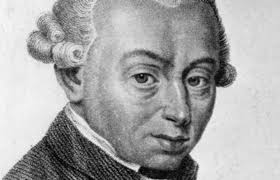
Rosenfeld provides valuable historical background on many of the themes, as well as many of the thinkers, that will occupy is for the next two weeks. She addresses most of these works directly.
Immanuel Kant, “What is Enlightenment?” PRINT AND READ
In Kant’s short essay, we find fruitful germs of the liberal democratic conception of citizenship. What does Kant mean by “enlightenment?” What does he mean by the obligation to act upon enlightened principles? How does he justify it?
What does it mean to be a good citizen in the US or any other liberal democracy? Do Americans live up to their responsibility to be good citizens? Does it matter if they do? Do you routinely live up to this challenge?
Truth and Politics today:
John Gramlich, “What makes a good citizen? Voting, paying taxes, following the law top list,” Pew Research Center, July 2, 2019 READ
4. Thursday, January 20: Truth and Liberty
Discussion theme: Sorry to say it, but none of us is infallible. This fact has direct implications for our understanding of politics. What role should the limitations on our capacity to know the Truth play in the design of a well-functioning liberal democratic polity? Conversely, why are authoritarian regimes not as concerned about the issue of human fallibility?
As you read Mill, ask yourself: What are the strengths and weaknesses of his position? What might they teach us about the strengths and weaknesses of liberal democracy?
“On the Liberty of Thought and Discussion,” in John Stuart Mill, On Liberty (1869), ONLY chapter II: PRINT AND READ
Truth and Politics today:
In the United States: Fox.com, “Fox News defends First Amendment Freedoms” READ
And the news sources that Fox attacks, come to its defense! READ
Would Fox defend them in similar circumstances?
In Britain: “BBC issues internal guidance on how to report climate-change,” carbonbrief.org READ Is the BBC the anti-Mill?
5. Tuesday, January 25: Real-World Politics (supposedly)
Discussion theme: In dictatorships, politicians lie by habit, deception, and decree. Are we naïve to expect that politicians will or even should behave differently in liberal democratic polities? Also, is it always a bad thing when they lie?
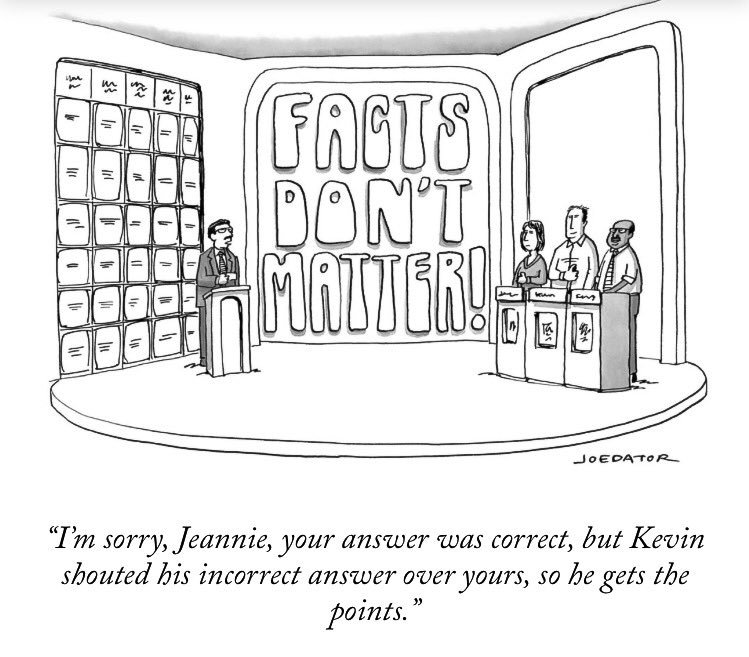
In this section, I would like to cover two themes: 1) the argument that all forms of political organization are about nothing more than domination. This argument is implicit in Machiavelli’s The Prince as well as in the works of political scientists who call themselves “realists”; and 2) the defense of political lying instead of telling the Truth.
Excerpts from Machiavelli’s The Prince PRINT AND READ
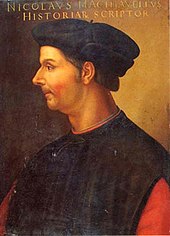 Machiavelli suggests that Princes should do some pretty nasty things if they want to stay in power. Nonetheless, is he arguing that rulers should have no other goal? To gain a more differentiated perspective on Machiavelli’s claims, consider these excerpts from his Discourses PRINT AND READ
Machiavelli suggests that Princes should do some pretty nasty things if they want to stay in power. Nonetheless, is he arguing that rulers should have no other goal? To gain a more differentiated perspective on Machiavelli’s claims, consider these excerpts from his Discourses PRINT AND READ
Truth and Politics today:
POLITIFACT.COM: “Joe Biden is wrong that he was against Afghanistan war om the start” PRINT AND READ
6. Thursday, January 27: Class Visit
Bob Costa (ND ’08)
Chief Election & Campaign Correspondent for CBS News
@costareports
Bob Woodward and Robert Costa, Peril. Chapters, 20, 21, 22, 26 (on Milley and Trump) and Chapters 42-44 (on Pence and Trump): PRINT AND READ
Note: The second ND Online access link should allow many of you to read the book simultaneously. But there may be limits to the number of times you can view or download the pages (I don’t know) and there are limits to the number of pages you can copy. Since these chapters are quite short, you should be able to print all of them.
7. Tuesday, February 1: The First Great Debate!
Democrats lie!
Proposition: “President Obama had no choice. He had to lie to make the Affordable Care Act possible! As politicians in liberal democracies have recognized for the past two centuries, lying and great leadership go hand in hand.”
Background Readings
Consider these contrasting perspectives:
David Leonhardt, “The Original Lie about Obamacare” PRINT AND READ TO PREPARE FOR THE DEBATE
“Obama’s pledge that ‘no one will take away’ your health plan,” Washington Post, October 30, 2013 PRINT AND RE-READ (awarded four Pinnochios by the Post)
Debate Structure: TBA
8. Thursday, February 3: Great Writing and the Art of Persuasion
In preparation for your essay assignments in this course, let’s talk about what constitutes great writing.
I love George Orwell. Thus, I assign his writings, especially the two below, again and again. More than seven decades after his death, Orwell continues to provide us with fresh insight into the study politics. As you will see, in “Politics and the English Language,” his argument is all about the ways in which words can be used and abused to justify dictatorship. The use and abuse of words plays a major role in American politics today.

Orwell also teaches us a lot about great writing. His books and essays are deceptively easy to read, but most people cannot write with the fluid, easily understandable, and totally persuasive style that he exemplifies. I wish I could! Still, I want you to try to emulate his example.
Readings from George Orwell:
“Politics and the English Language” PRINT AND READ Look at what Orwell has to say about both 1) the political uses and abuses of words; and 2) good writing.
“Why I write” PRINT AND READ This article is about both the personal motivations behind writing and the psychological factors that make great writing difficult.
George Orwell: Facsimile (handout)
Mystery Facsimile (handout)
Also consider the power of the words used by the Trump and Biden administrations. See Michael Shear, “The Words that are In and Out with the Biden Administration”: PRINT AND READ
What would Orwell say about Biden’s language policies?
9. Tuesday, February 8: Listen to the Experts: Political Experts Rule!
Discussion theme: What role should expertise play in liberal democratic politics?
The goal of this session is to examine the idea of expertise in politics and the way that political elites use it to justify their rule over ordinary citizens.
Sophia Rosenfeld, Democracy and Truth A Short History, Chapter II, pp. 42-72.
James Madison and/or Alexander Hamilton, Federalist Papers, nos. 10, 49, 57, 58 PRINT AND READ
Truth and politics today: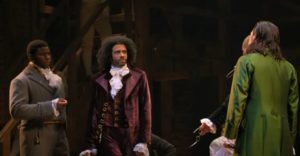
Jeffrey Rosen, “America is Living James Madison’s Nightmare” PRINT AND READ
Paragraph assignment:
“Hilary Clinton should have read Dewey’s “Search for the Great Community” in college, rather than the Federalist Papers. If she had done so, she—and not DT—would have won the 2016 election!”
Is this claim true or false? Write an introductory paragraph and the first sentence of the second paragraph in a manner so fluid that it will lay the groundwork for a 20-page essay.
10. Thursday, February 10: Bringing the People in!
John Dewey’s idea of truth and democracy represents a notable contrast with the preceding readings. Readers frequently find Dewey’s argument challenging. Thus, be prepared to read it several times.
Sophia Rosenfeld, Democracy and Truth A Short History, pp. 72-91
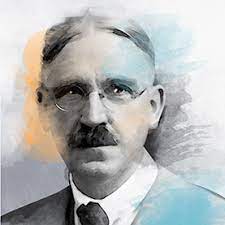 John Dewey, The Public and its Problems, Chapter V, “The Search for the Great Community” LOCATE HERE AND PRINT
John Dewey, The Public and its Problems, Chapter V, “The Search for the Great Community” LOCATE HERE AND PRINT
(Hesburgh also has two on-line versions. You can use one of them to download a PDF. If you want to do this, print the chapter the first time you see it; the publishers may not let you “take it out” again)
Truth and politics today:
What do we mean by “community”? Are all communities good? When do they work well?
Jon MooalJo, “Is Life Better when we’re Together?” New York Times, December 26, 2021` READ AND TAKE NOTES
How did community make a difference in the fight against polio? Susan Brink, “Can’t Help Falling In Love With A Vaccine: How Polio Campaign Beat Vaccine Hesitancy” READ AND TAKE NOTES
11. Tuesday, February 15: Looking Back at the Big Thinkers
At this point in our course, we have covered a lot of material, a lot of thinkers, and a lot of themes. Today, we will take the time to look back at this material and see how it all fits together.
Our goal is to engage in a comparative discussion of all of the thinkers we have encountered: Machiavelli, Kant, Mill, Orwell, Madison and Hamilton, and Dewey. We can do this by comparing and contrasting their views on the following subjects:
-
-
- The nature of truth
- How one pursues the truth
- Human nature and truth
- The good society
- The relationship between the truth and the good society
-
.
